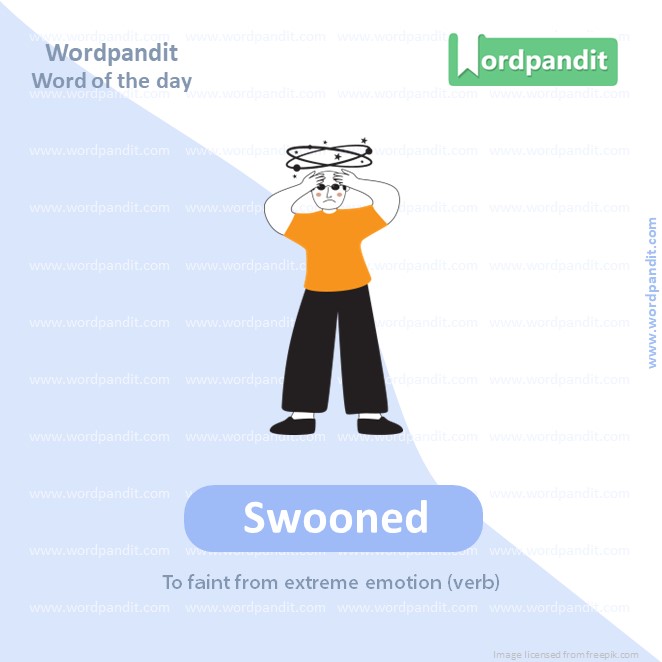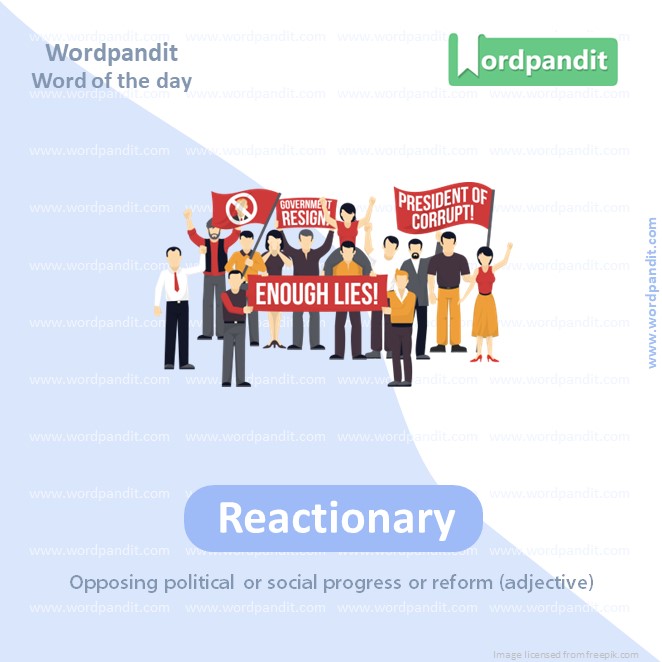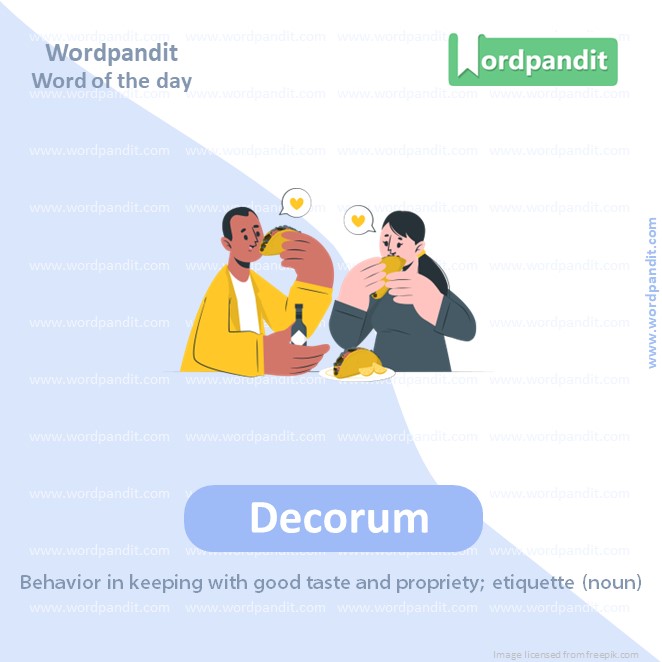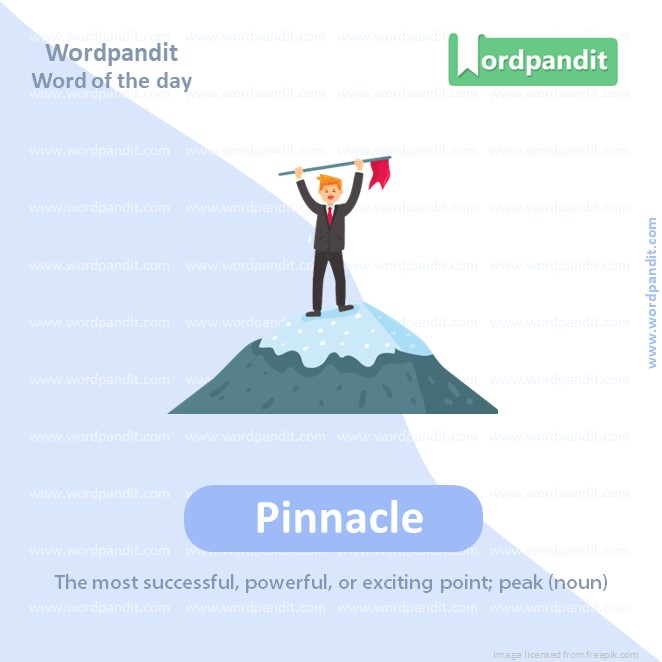Daily Vocabulary from International Newspapers and Publications
Expand Your Vocabulary with Wordpandit’s Global Vocabulary Hub
At Wordpandit, we are committed to helping you develop a truly global vocabulary by drawing from some of the most respected international publications. This section is designed to keep you ahead of the curve by introducing you to words that define global conversations and trends.
The Power of Global Sources
To help you think and communicate on a global scale, we curate vocabulary from renowned international sources, such as:
- The New York Times
- The Washington Post
- BBC
- The Guardian
- The Economist
- Scientific American
- Psychology Today
- And many more...
Stay Global, Stay Competitive
Our daily updates from international publications ensure you are consistently exposed to new words that reflect global news and developments, making sure your vocabulary is not only current but also globally relevant.
Enhance Your Global Perspective
Whether you’re preparing for international exams, aiming to excel in global business communication, or want to enhance your language skills for personal growth, Wordpandit offers the resources you need to thrive in a global context.
Effective Learning, Global Reach
Our learning methodology combines global examples, memory aids, and interactive activities, allowing you to internalize new words effectively and apply them in real-world scenarios.
Begin Your Global Vocabulary Journey Now!
Why Choose Wordpandit?
Practical Learning: Focus on words you'll actually encounter in real-world reading, enhancing your comprehension and communication skills.
Diverse Content: From current affairs to scientific breakthroughs, our varied sources expose you to vocabulary across multiple domains.
Effortless Integration: Make Wordpandit a part of your daily routine. Just a few minutes each day can significantly boost your lexicon over time.
Your Path to Vocabulary Mastery
- Visit our Daily Vocabulary section regularly
- Explore new words and their usage in context
- Practice incorporating these words into your own writing and speech
- Track your progress as your vocabulary expands
Start Your Journey Today
Embark on your vocabulary enhancement journey with Wordpandit. By consistently engaging with our daily posts, you'll build a robust vocabulary that serves you well in academic, professional, and personal contexts.
Remember, a word a day keeps linguistic limitations at bay. Make Wordpandit your daily companion in the quest for vocabulary excellence!
WORD-1: Swooned
Context:
"In 2015 and 2016, as he was becoming the Republican nominee the first time, Mr. Trump quickly transformed into an all-encompassing, central figure, in an evolving, building story that started like a dark joke that Mr. Trump was in on, then swooned into a reality." - The New York Times
Explanatory Paragraph:
The word "swooned" in this context refers to a dramatic, almost dreamy shift into something that felt surreal or too emotionally overwhelming to resist. While "swoon" traditionally refers to fainting from strong emotions like love or admiration, here it metaphorically describes the gradual and emotional way a surreal or unbelievable situation became actual reality. It's as if the public or narrative itself melted into believing or accepting the improbable.
Meaning: To faint from extreme emotion or to be carried away by strong feelings (verb)
Pronunciation: swoond
Difficulty Level: ⭐⭐ Beginner to Intermediate
Etymology: From Middle English *swounen*, from Old English *swōgan* (to groan or sigh), related to swooning from pain or emotion.
Prashant Sir's Notes:
Think of "swooned" not just as fainting physically, but as giving in emotionally — to love, beauty, or even an idea. In literature and journalism, it often has a poetic or ironic tone, as used here to convey a dreamy shift into an unexpected reality.
Synonyms & Antonyms:
Synonyms: faint, droop, collapse, melt, drift, yield
Antonyms: resist, awaken, steady, strengthen
Usage Examples:
- She swooned at the sight of her favorite movie star walking into the room.
- The audience swooned as the singer hit the final high note.
- Critics swooned over the novel's poetic language and emotional depth.
- He swooned into acceptance, no longer questioning the surreal events unfolding around him.
Cultural Reference:
"Teenagers in the 1960s famously swooned over The Beatles, sometimes fainting at the mere sight of them." - Pop Culture Archives
Think About It:
Why do people sometimes "swoon" — either literally or metaphorically — when faced with something overwhelming? Is it a form of escape or surrender?
Quick Activity:
Write a two-sentence mini-story using "swooned" in a metaphorical sense. Try not to make it about fainting!
Memory Tip:
Think: *"She swooned like a spoon in hot tea — slowly melting into the moment."* This visual helps you remember the dreamy or overwhelmed feeling behind the word.
Real-World Application:
"Swooned" is often used in journalism, literature, and pop culture writing to describe not just physical fainting, but emotional surrender or a dreamy transition — perfect for describing cultural phenomena or unexpected public reactions.
WORD-2: Reactionary
Context:
"It seemed to click into place then that Mr. Trump’s fluid plans, reactionary ideas, jokes and lies could coexist with and shape grave events." - The New York Times
Explanatory Paragraph:
The term "reactionary" refers to ideas or actions that are strongly opposed to change and favor a return to traditional or previous systems, often in politics or society. In the context provided, it highlights how Trump's ideas weren’t necessarily forward-looking or progressive; instead, they pushed back against current developments or norms, potentially aiming to restore something from the past. Reactionary thinking tends to be rooted in a desire to resist modern reforms or social changes.
Meaning: Opposing political or social progress or reform; favoring a return to a previous state (adjective/noun)
Pronunciation: ree-AK-shun-air-ee
Difficulty Level: ⭐⭐⭐ Intermediate
Etymology: From French *réactionnaire*, based on *réaction* (reaction), used to describe opponents of the French Revolution; first emerged in the late 18th century.
Prashant Sir's Notes:
A reactionary is not just someone who reacts quickly — it’s a term deeply rooted in ideology. Think of it as someone who wants to roll back the clock, often in response to what they see as excessive progress. In exams, it’s often tested as the opposite of “progressive.”
Synonyms & Antonyms:
Synonyms: conservative, traditionalist, regressive, right-wing
Antonyms: progressive, liberal, reformist, radical
Usage Examples:
- The senator's reactionary stance on women's rights sparked national debate.
- Reactionary movements often emerge during times of social upheaval.
- His speech was filled with reactionary ideas aimed at reviving old norms.
- While some applauded the reforms, others took a more reactionary position.
Cultural Reference:
"During the French Revolution, the term 'reactionary' was used to describe those who wanted to restore the monarchy and reverse revolutionary gains." - European History Chronicles
Think About It:
Can a reactionary mindset sometimes be beneficial, or does it always resist necessary progress?
Quick Activity:
Identify whether the following statements are “progressive” or “reactionary” in nature. Write ‘P’ or ‘R’ next to each.
Memory Tip:
Think: *"A reactionary reacts by reaching back."* That is, instead of embracing change, they pull toward the past.
Real-World Application:
The word "reactionary" is often used in political commentary to describe individuals or groups resisting modern reforms, particularly in debates over civil rights, education, or climate change policies.
WORD-3: Wandering
Context:
"But the path toward his likely renomination feels relatively muted, as if the country were wandering through a mist, only to find ourselves back where we started, except older and wearier, and the candidates the same." - The New York Times
Explanatory Paragraph:
In this sentence, "wandering" is used metaphorically to describe a nation drifting aimlessly or without clear direction. The word often implies movement without a definite goal or purpose, and in this case, it paints a picture of confusion or repetition—moving in circles and ending up right where one began. It evokes a sense of uncertainty, fatigue, and lack of progress, which adds emotional weight to the political commentary.
Meaning: Traveling aimlessly or without a fixed course; moving from place to place without purpose (verb/adjective)
Pronunciation: WAWN-der-ing
Difficulty Level: ⭐ Beginner
Etymology: From Old English *wandrian*, meaning to roam or move about; related to the German *wandern* (to hike, travel).
Prashant Sir's Notes:
"Wandering" is often used both literally and metaphorically. Whether it’s a person walking without direction or a society going through events without purpose, the core idea is aimlessness. It’s a powerful word for describing emotional, mental, or political drift.
Synonyms & Antonyms:
Synonyms: drifting, roaming, meandering, straying, rambling
Antonyms: focused, purposeful, directed, steady
Usage Examples:
- She spent the summer wandering through the hills, lost in thought.
- His mind kept wandering during the long and boring lecture.
- The novel captures the feeling of a generation wandering in search of meaning.
- We’ve been wandering through the same debates for years without resolution.
Cultural Reference:
"Not all those who wander are lost." - J.R.R. Tolkien, *The Lord of the Rings*
Think About It:
Is wandering always a negative thing, or can aimlessness sometimes lead to discovery and growth?
Quick Activity:
Write a short 3-line poem using the word “wandering” to express either physical movement or emotional drift.
Memory Tip:
Remember: *Wandering = Wondering + Walking.* Think of someone lost in thought, slowly walking without a map—perfect for this word.
Real-World Application:
"Wandering" can be used in travel writing, personal reflections, and even political commentary to express movement without clear direction—ideal for conveying feelings of confusion, nostalgia, or stagnation.
WORD-4: Decorum
Context:
"If Gay is to go, let it be after more deliberation, with more decorum, and when pundits like me aren’t writing about her.” Oh, well. - The New York Times
Explanatory Paragraph:
"Decorum" refers to proper and polite behavior, especially in a setting that demands respect or dignity. In the context above, the writer expresses a wish that any decision about Gay’s departure be handled with greater formality, calmness, and civility. The use of "decorum" signals a desire for measured, respectful conduct rather than rushed or chaotic action influenced by media noise or public outcry.
Meaning: Behavior in keeping with good taste and propriety; proper conduct (noun)
Pronunciation: duh-KOH-rum
Difficulty Level: ⭐⭐ Beginner to Intermediate
Etymology: From Latin *decōrum*, meaning "that which is proper," derived from *decorus* (fitting, seemly), related to the root *decus* meaning "grace" or "honor."
Prashant Sir's Notes:
Decorum is all about the right behavior at the right place. Think of a courtroom, a formal dinner, or even a resignation—there's a way to conduct oneself, and that’s what this word captures. It often comes up in essays and interviews discussing leadership, behavior, or politics.
Synonyms & Antonyms:
Synonyms: propriety, etiquette, civility, formality, politeness
Antonyms: impropriety, rudeness, indecency, disrespect
Usage Examples:
- The judge demanded decorum in the courtroom at all times.
- Despite the heated debate, she maintained her decorum and responded calmly.
- He lacked the social decorum expected at such formal gatherings.
- The farewell event was handled with quiet dignity and proper decorum.
Cultural Reference:
In British Parliament, strict rules of decorum govern how members speak and behave, reflecting the institution’s emphasis on tradition and respectful conduct.
Think About It:
In today's fast-paced digital world, is traditional decorum still necessary, or has it become outdated in favor of authenticity and informality?
Quick Activity:
Think of two settings where decorum is expected and two where it might be intentionally broken. Write them down and explain why.
Memory Tip:
Decorum = *Decorate your behavior.* Imagine you're putting a suit or dress on your actions—making them presentable and respectful.
Real-World Application:
"Decorum" is widely used in discussions of professional behavior, leadership, politics, and even classroom conduct. Understanding it is key for interviews, debates, and essays involving ethics or public responsibility.
WORD-5: Pinnacle
Context:
"The answer, I think, is this: Where there used to be a pinnacle, there’s now a crater." - The New York Times
Explanatory Paragraph:
The word "pinnacle" refers to the highest point or the peak of something—be it a career, a moment, a structure, or influence. In this context, the writer contrasts a time when there was greatness or peak achievement ("a pinnacle") with the present situation, now reduced to emptiness or destruction ("a crater"). It captures a sharp fall from greatness and the emotional weight of decline or loss.
Meaning: The most successful, powerful, or exciting point; the highest point (noun)
Pronunciation: PIN-uh-kul
Difficulty Level: ⭐⭐ Beginner to Intermediate
Etymology: From Latin *pinnaculum* (small wing, gable, or point), a diminutive of *pinna* meaning "peak" or "battlement". Originally used in architecture, it later evolved into a metaphor for greatness or peak success.
Prashant Sir's Notes:
Pinnacle is a classic metaphor word—often used in essays, speeches, and articles to describe the top or peak moment. When you're describing success or decline, pairing "pinnacle" with "plummet" or "crater" gives it even more dramatic impact.
Synonyms & Antonyms:
Synonyms: peak, summit, apex, zenith, climax
Antonyms: bottom, base, nadir, trough, low point
Usage Examples:
- Winning the Nobel Prize was the pinnacle of her academic career.
- They reached the pinnacle of success after decades of hard work.
- At the pinnacle of the mountain, we paused to take in the breathtaking view.
- The artist's early work was impressive, but his later pieces marked the pinnacle of his creativity.
Cultural Reference:
“At the pinnacle of its influence, the Roman Empire stretched across three continents, a symbol of unmatched power and cultural reach.” - World History Texts
Think About It:
Is the pinnacle of success always visible when you’re at it, or do we only recognize it in hindsight?
Quick Activity:
List three pinnacles you’ve seen in real life (sports, politics, art, etc.). Then describe what followed—did they maintain it, or fall?
Memory Tip:
Picture a triangle's tip—or a mountain peak. "Pinnacle" = *Peak*. Both start with "P" and point to the top!
Real-World Application:
"Pinnacle" is used in motivational speeches, career milestones, and historical analysis to describe moments of greatness. Whether you're writing an essay or delivering a presentation, it instantly adds a sense of climax or importance.



















